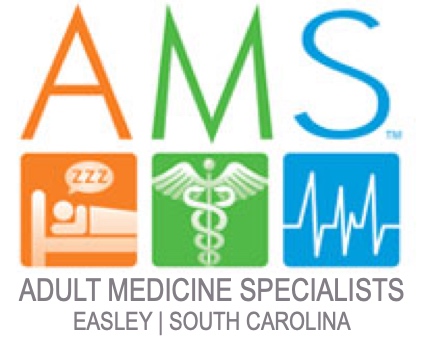Beyond POTS: A Comprehensive Approach to Overlapping Disorders
Patients with Postural Orthostatic Tachycardia Syndrome (POTS) often find themselves navigating a complex web of related conditions. At our practice, we have years of experience understanding and treating not only POTS but also the constellation of other disorders that frequently accompany it. Our bottom-up approach ensures that we address the root causes of these interconnected conditions, offering patients a holistic, personalized path to improved health.
Common Overlapping Diagnoses in POTS Patients
Patients with POTS often experience a range of other disorders, reflecting the interconnectedness of autonomic dysfunction, systemic inflammation, and nervous system imbalances. Below are some of the most common conditions we encounter:
Myalgic Encephalomyelitis/Chronic Fatigue Syndrome (ME/CFS)
- Overview: ME/CFS is characterized by profound fatigue, post-exertional malaise, and unrefreshing sleep. It often coexists with POTS and shares mechanisms like mitochondrial dysfunction, systemic inflammation, and oxidative stress.
- Our Approach: We focus on energy conservation strategies, NAD replenishment therapies, and graded activity plans tailored to each patient’s tolerance.
Other Dysautonomias
- Overview: POTS frequently overlaps with other dysautonomias, such as neurocardiogenic syncope and pure autonomic failure. These conditions cause variable dysfunction in blood pressure regulation, heart rate control, and other autonomic processes.
- Our Approach: We perform detailed autonomic testing, including tilt table testing, to identify overlapping dysautonomias and implement comprehensive management plans.
Central Sensitization Syndrome (CSS)
- Overview: CSS involves heightened sensitivity to pain and other sensory inputs, leading to chronic widespread pain, fatigue, and sensory overload.
- Our Approach: We combine IV lidocaine infusions, antioxidants, and neuroregulatory therapies like vagus nerve stimulation to address neuroinflammation and reduce pain sensitivity.
Migraine Headaches
- Overview: Migraines are common in POTS patients and often result from neurovascular instability and inflammation.
- Our Approach: We incorporate abortive and preventive medications alongside lifestyle modifications, stress management, and antioxidant therapies to reduce the frequency and severity of migraines.
Sleep Disorders: Insomnia, Hypersomnia, Narcolepsy, Idiopathic Hypersomnia
- Overview: POTS patients often suffer from disrupted sleep, including insomnia and excessive daytime sleepiness (hypersomnia). Conditions like narcolepsy and idiopathic hypersomnia may also coexist.
- Our Approach: We emphasize sleep hygiene, melatonin supplementation, and in some cases, therapies like modafinil for excessive sleepiness. Addressing underlying autonomic dysfunction can also significantly improve sleep quality.
Gastrointestinal Disorders: IBS and Gastroparesis
- Overview: Gastrointestinal dysmotility is common in POTS, with symptoms ranging from irritable bowel syndrome (IBS) to delayed gastric emptying (gastroparesis).
- Our Approach: Dietary modifications, prokinetic agents, and gut-directed therapies help improve motility and reduce symptoms. We also address systemic inflammation to support gastrointestinal health.
Menstrual Disorders
- Overview: Dysautonomia can exacerbate menstrual irregularities, causing painful periods (dysmenorrhea), heavy bleeding, or hormonal imbalances.
- Our Approach: We work closely with gynecologists to integrate hormonal therapies and address systemic contributors like inflammation and stress.
Cognitive Issues: Brain Fog and Concentration Difficulties
- Overview: Many POTS patients report brain fog, characterized by memory lapses, slow processing, and difficulty concentrating.
- Our Approach: We address mitochondrial health, improve cerebral blood flow with tailored autonomic therapies, and implement cognitive support strategies.
Our Approach: Years of Experience, Holistic Methods
At our practice, we take pride in offering patients with POTS and related disorders a place where they feel heard and understood. Our bottom-up approach ensures we address the foundational issues underlying their complex health challenges.
A Comprehensive Diagnostic Process
We begin with a thorough evaluation to identify all contributing conditions. This includes advanced diagnostic tools such as:
- Tilt table testing for autonomic dysfunction.
- Gastrointestinal studies for motility issues.
- Sleep studies for hypersomnia, narcolepsy, and insomnia.
Individualized Treatment Plans
Every patient receives a personalized plan that integrates:
- IV Therapies: NAD, vitamin C, glutathione, and lidocaine to reduce systemic inflammation, support mitochondrial function, and address pain.
- Lifestyle Modifications: Tailored exercise programs (e.g., the Levine protocol), anti-inflammatory diets, and stress reduction techniques like mindfulness and yoga.
- Supplementation: Antioxidants (e.g., resveratrol, curcumin), NAD precursors (NR, NMN), and adaptogens to reduce oxidative stress and improve resilience.
- Neuroregulatory Therapies: Transcutaneous vagus nerve stimulation to restore autonomic balance and reduce inflammation.
A Focus on Holistic Health
Our approach incorporates complementary therapies, including acupuncture, music therapy, and cognitive behavioral therapy, to help patients manage their symptoms and regain control over their lives.
Why Our Practice Stands Out
Patients with POTS and related conditions often face a long journey of misdiagnoses, fragmented care, and frustration. At our practice:
- We offer a refuge where patients feel heard and understood.
- We provide a one-stop center for comprehensive diagnostic workups and holistic treatment plans.
- We welcome self-referrals and physician referrals, ensuring patients have access to expert care without unnecessary barriers.
Conclusion
POTS is rarely an isolated condition, and its overlap with disorders like ME/CFS, CSS, migraines, and sleep disturbances makes comprehensive care essential. At our practice, we take pride in our years of experience managing these complex syndromes, combining scientific rigor with compassionate care. Our bottom-up approach ensures that every patient receives holistic, personalized treatment that addresses the root causes of their symptoms, allowing them to reclaim their health and quality of life.
If you or someone you know is struggling with POTS or related conditions, we are here to help. Contact us to begin your journey toward better health.
Steven E. Freeman, MD, PhD




